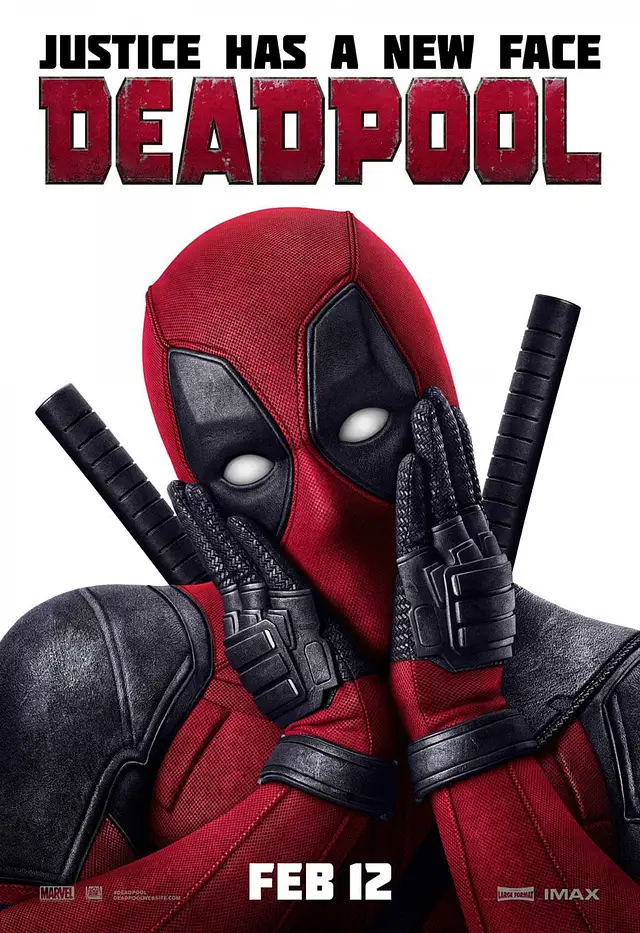When Deadpool first hit theaters in 2016, it wasn’t just another superhero movie—it was a revolution. Directed by Tim Miller and starring Ryan Reynolds, the film broke new ground in a genre that had often stuck to formulaic storytelling and PG-13 ratings. But what truly sets Deadpool apart is its bold, unapologetic humor, meta commentary, and R-rated antics. Let’s dive into the story, characters, and how it stacks up against the MCU and DCEU—and why it still holds up today.
Deadpool follows the story of Wade Wilson (Ryan Reynolds), a mercenary with a dark sense of humor and a penchant for breaking the fourth wall. After falling in love with Vanessa Carlysle (Morena Baccarin), Wade’s life takes a turn when he’s diagnosed with terminal cancer. He agrees to undergo an experimental treatment to cure his cancer but is betrayed by Ajax (Ed Skrein), a sadistic scientist who leaves Wade disfigured yet endowed with accelerated healing powers. Donning a red suit and dubbing himself “Deadpool,” Wade embarks on a quest for revenge against Ajax while trying to reclaim his relationship with Vanessa. The story, while straightforward, is enriched by its non-linear narrative structure, with flashbacks providing insight into Wade’s transformation. The film’s unique tone is established right from the opening credits, which replace traditional names with titles like “A Hot Chick” and “A CGI Character.”
Ryan Reynolds was born to play Deadpool (unlike his foray in Green Lantern) & this time he’s the actual comic character – not the bastardization portrayed in the XMen movie as mentioned later. His rapid-fire wit, sardonic humor, and physicality bring Wade Wilson to life in a way that’s both hilarious and heartfelt. Reynolds had previously portrayed a version of Deadpool in X-Men Origins: Wolverine (2009), but that interpretation was widely panned for straying too far from the comic book source material. Deadpool 2016 serves as a redemption for both the character and Reynolds himself, who fought tirelessly to get the film made. Reynolds’ career has had its ups and downs in the superhero genre. He also starred as Hal Jordan in Green Lantern (2011), a DC film that failed to resonate with audiences or critics. The actor has been self-deprecating about the flop, even using Deadpool to poke fun at it, including a scene where Wade requests not to be given a “green or animated” suit. This self-awareness is a key ingredient in why Deadpool works so well.
The supporting cast of Deadpool also deserves recognition. Morena Baccarin as Vanessa Carlysle brings more depth than the typical superhero love interest. Ed Skrein’s Ajax, though not as nuanced as MCU’s Loki or Killmonger, is a suitably smug villain. T.J. Miller’s Weasel adds a constant stream of comedic gold, while Colossus (Stefan Kapičić) and Negasonic Teenage Warhead (Brianna Hildebrand) provide a hilarious contrast to Deadpool’s chaotic energy. Their inclusion also nods to the X-Men universe while letting Deadpool shine on its own.
One of Deadpool’s standout features is its frequent breaking of the fourth wall. Wade directly addresses the audience, referencing everything from Hugh Jackman’s Wolverine to the movie’s limited budget. This meta approach allows the film to critique superhero tropes while reveling in them. Few other films in the genre—aside from perhaps She-Hulk: Attorney at Law or Birds of Prey—have successfully employed this technique to such comedic effect.
So, how does Deadpool compare to the MCU and DCEU? While the MCU’s interconnected universe leans toward family-friendly fun with clever humor (Iron Man, The Avengers), Deadpool fully embraces adult themes, graphic violence, and vulgarity. Its focus on smaller stakes, like personal revenge and love, makes it feel refreshingly intimate compared to the world-ending crises in The Avengers or Guardians of the Galaxy. Meanwhile, the DCEU has often been criticized for being overly dark and self-serious (Man of Steel, Batman v Superman), which makes Deadpool’s irreverence stand out even more. When compared to Suicide Squad (2016), which also tried for irreverence but stumbled due to inconsistent writing, Deadpool thrives because of its lean budget and creative freedom.
Deadpool wasn’t just a hit; it was a game-changer. Its R-rated success paved the way for films like Logan and the Deadpool sequel, proving audiences were ready for more mature takes on superhero stories. It also showed how fan support could turn the tide, with the film’s production largely credited to the leaked test footage that went viral. On a modest $58 million budget, it grossed over $780 million worldwide. This cultural impact cannot be overstated.
Deadpool is a rare gem—a film that defies conventions while wholeheartedly embracing its comic book roots. Its humor, heart, and unabashed irreverence make it a standout, not just among X-Men films but across all superhero movies. Whether you’re a die-hard Marvel fan, a casual moviegoer, or someone who’s tired of superhero fatigue, Deadpool offers something refreshingly unique. For more, check out our deep dive into Logan‘s gritty realism, our review of Iron Man‘s genre-defining origins, and our analysis of The Dark Knight‘s moral complexity, all on Zone-Six.net.

